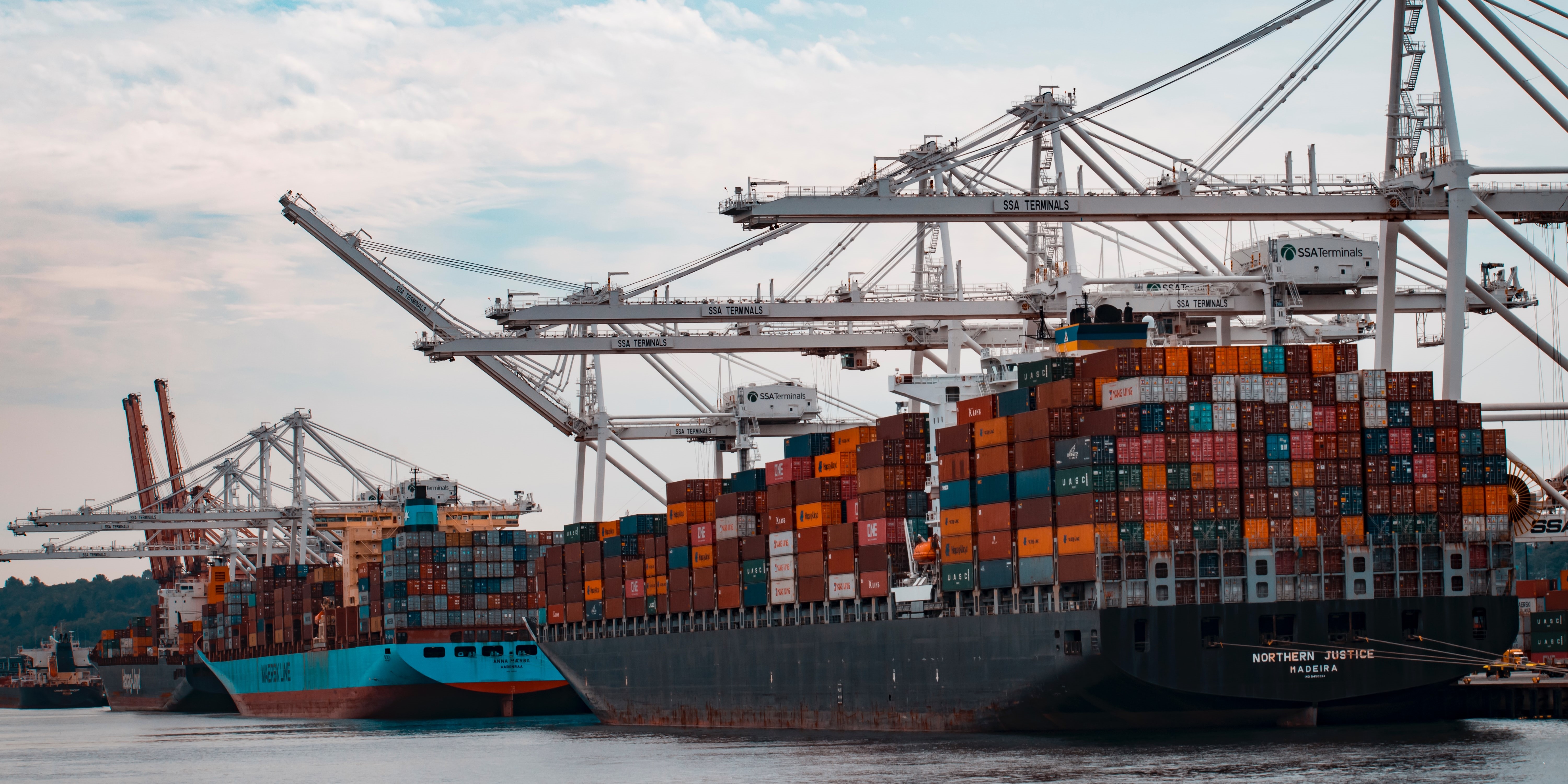How To Drive Profits Through Untapped Markets During A Recession.
ClickThrough's Head of International, Alison Booth, tells us how to increase your profits through untapped markets during a recession.
Read moreOur international marketing expert, Alison Humphries, updates us on the latest news stories from around the globe, including experiential marketing, UK-Japan exporting and the importance of strong customer service.
What's new, important and interesting in international marketing? This week we look at new markets to target to diversify and grow revenue, the attention that should be paid to service delivery, dynamism in re-inventing Marketing strategies to suit the post pandemic era, the evolution of Chinese manufactured goods exports through current trading challenges with the US and taking the importance of offering virtual events in place of previously planned offline events to ensure ongoing consumer engagement.
The forecasted weak growth of the UK economy spell concerns for companies in many sectors, The Institute of Export and International Trade report on an optimal export market opportunity that could grow revenue for UK companies struggling in their domestic market, who could benefit from diversification through internationalisation or are in a position to expand their reach into new markets with a clear demand for their products or services. Discussions began today on a trade deal with Japan that could inject £1.5bn revenue into the UK economy and could secure additional benefits for digital trade and closer financial cooperation that are not available through the EU trade agreement, according to Liz Truss, Secretary of State for trade.
The following stats outline the potential opportunity available through the agreement:
The trade agreement offers entry into the CPTPP free trade bloc opening up opportunities with the Asia-Pacific region: Australia, Brunei, Canada, Chile, Japan, Malaysia, Mexico, New Zealand, Peru, Singapore and Vietnam. Currently worth 13% of global GDP and increasing to 16% if the UK were to join.
Jing Daily analysed consumer experiences with luxury brands to identify those with as greater potential to survive and navigate successfully through the current economic challenges. Consumers have had mixed experiences when trying to return defective items to recently opened stores or online stores. They hypothesised that 50% of luxury brands may not survive the pandemic, not due to the economic impacts of the virus, but due to a lack of appreciation of relationships with their current customer base and overpromising and under delivering.
Advice for survival is to have customer relationship management at the core of your operations through:
Brands focused on creating value, inspirational and rational positioning, delivering a purposeful and relevant story and planning the customer journey carefully herald the greatest chance of survival.
Think with Google investigated how digital ads strategies could be adapted to a post pandemic world.
The importance of authenticity to Marketing communications is becoming pivotal to success through emphasising the human factor and bringing a sense of caring and community to the fore.
Changing the tone to align with the transformation of how we are currently living our lives are received in a much better way Publicis Italy's Heineken campaign depicting “new social relationships” is a good example of this.
Companies are more accepting to trying new things that could aid survival, advanced attribution modelling aids the decision of the best strategies to take. The key is to focus on implementing long-term, future proofed tactics.
Learning from each other to identify the most effective methods to implement successful advertising strategies through this period is fundamental to success.
Adaptation is vital; Tesco's Keeping You Safe campaign and Mondalez's adjustment of their production process away from chocolate sculptures to medical visors for frontline NHS staff exemplified their sensitivity to vulnerable groups, which resonated well with their target audience.
Rethinking company culture has been embraced by businesses emerging successfully from the pandemic with their fingers on the pulse of VULCA (volatility, uncertainty, complexity, and ambiguity). Biedronka, the largest supermarket chain in Poland took a successful approach through forming a partnership with Glovo, an on-demand courier service to enable consumers to buy their products online and have them delivered from one of the 10 stores nearest to their location.
The Center for Strategic and International Studies investigated plans across global economies to move production away from China. It appears that while the US government would like to reduce high tech exports to China, limit investment expansion and move production away from China to on shore, most US and Western European companies are not striving to meet these aims.
A recent survey carried out by the European Union Chamber of Commerce in China indicated that only 11% of European companies are considering moving their investments from China to other markets, which is lower than last year. A further survey carried out in Germany showed that while a number of firms had cancelled or delayed investment decisions, only 4% considered relocating manufacturing from China. The US version of the survey shows that only 9% of American companies surveyed are looking to divest their manufacturing activities in China, with only 8% more considering doing this.
Recent Japanese government funding of $2.2 bn to aid firms in moving their manufacturing away from China seems high, it is a very small proportion of the amount of Japanese investment in manufacturing in China. Additionally Toyota have recently set up a joint venture with 5 Chinese companies to produce fuel-cell powered commercial vehicles.
Diplomatic tensions are not the main reason for companies removing manufacturing from China, rising labour costs, improvements in 3D printing and other automated manufacturing processes and climate change are commonly a factor.
It is unlikely that we will see a sudden upsurge of domestic market manufactured goods as a result of the US government trade negotiations, we may see companies putting strong arguments forward to maintain manufacturing alliances with China.
Initially the future looked bleak for companies dependent on events to fuel their revenue. However, many have pivoted to organising virtual events as an alternative.
eMarketer discuss best practices with MAG Experience from New York:
These are recommendations that could help many brands, who were considering postponing events to rethink how they could be delivered virtually instead in order to maintain that higher level of brand engagement.
Looking to expand internationally? Learn which markets make the most sense for your business, and how to start - just drop us a line and we'll be in touch.
More articles you might be interested in:

ClickThrough's Head of International, Alison Booth, tells us how to increase your profits through untapped markets during a recession.
Read more
Welcome to the latest round-up of all things digital. This is where we look at the latest updates in the world of PPC, SEO, Content and International...
Read more
Find out more about the latest updates in digital marketing. Featuring key updates from Google, demystifying meta descriptions, and checking in on...
Read more
Episode eight of The Assorted Digital Ramblings podcast is now out! Learn more about International Marketing with guest Alison.
Read more
In this week's International Marketing News, Andrea takes us through personalisation and privacy in retail and much more. Read on.
Read more
In this week's International Marketing News, Andrea takes us through new .au domain extensions, Bitcoin ATMs and more. Read on.
Read more
Join Andrea Diaz for this week's International Marketing news, covering walled garden investigations and more.
Read more
In the International Marketing News this week, Andrea Diaz takes us through the importance of implementing omnichannel strategies in 2022, Huawei...
Read more